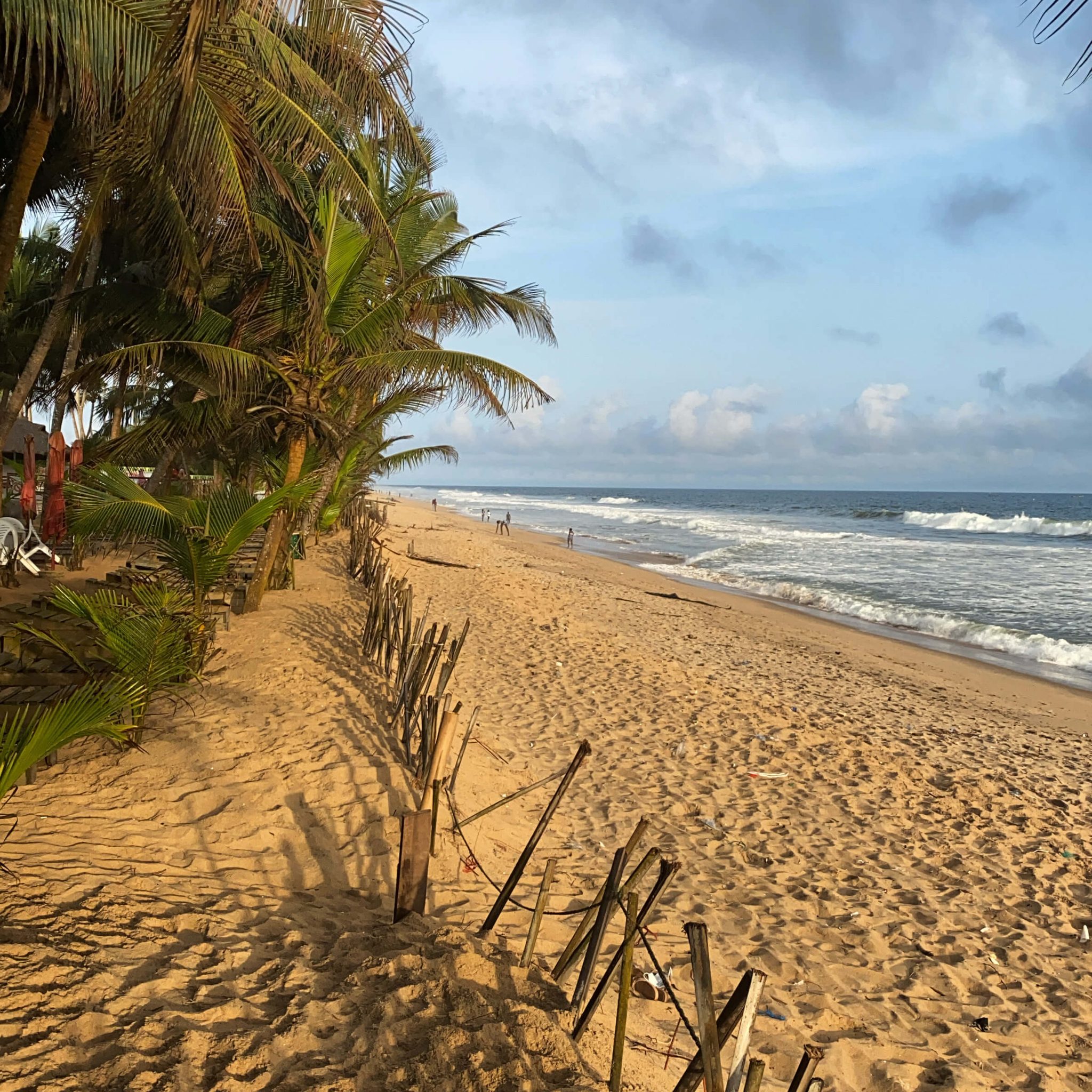
The famous beaches of Grand Bassam – and the inspiration behind Côte d’Ivoire’s.
For several years, the Dutch government, and especially RVO, focused their international development efforts on entrepreneurship as a pathway toward the economic and social empowerment of youth and women, particularly in the MENA region. As a result, they have developed several private-sector development (PSD) tools which they can apply in countries through Dutch embassies. These tools include creating entrepreneurship incubation and acceleration programming, institutional exchanges, educational programs, hosting “hackathons” and business competitions, providing seed funding, and much more. The PSD tools are aimed at supporting embassies in focus countries to boost small business success among youth. In Côte d’Ivoire, RVO, via the Dutch embassy, has since 2015 promoted entrepreneurship in several ways. Like many other donors, they have noticed a specific and unique challenge to women’s economic participation and access to entrepreneurship. Despite the fast pace of economic growth — averaging 8% gross domestic product (GDP) growth per year since 2015 — gender equality continues to lag significantly.
Côte d’Ivoire ranks 155 out of 159 on the World Gender-Equality Index, one of the highest inequality rates in the world, leaving women in the country significantly disenfranchised when it comes to business. As a result, RVO and the Dutch embassy in Abidjan turned to Catalystas Consulting to further investigate the ecosystem. Our specific goals were to present an accurate snapshot of the current ecosystem of entrepreneurs in Côte d’Ivoire, examine how this ecosystem empowers and hinders women, and identify which actors and authorities are doing the most – or least – for women’s economic empowerment.
To effectively achieve these goals, our team undertook a four-part research project spanning five months which included distance data collection, in-country data collection and triangulation, follow-up information, and data analysis. The result was the first-ever study on women’s entrepreneurship in Côte d’Ivoire. During the summer of 2020, we met with stakeholders in virtual space throughout the research period and formulated insights on various areas of the country to plan our September field mission effectively and strategically.
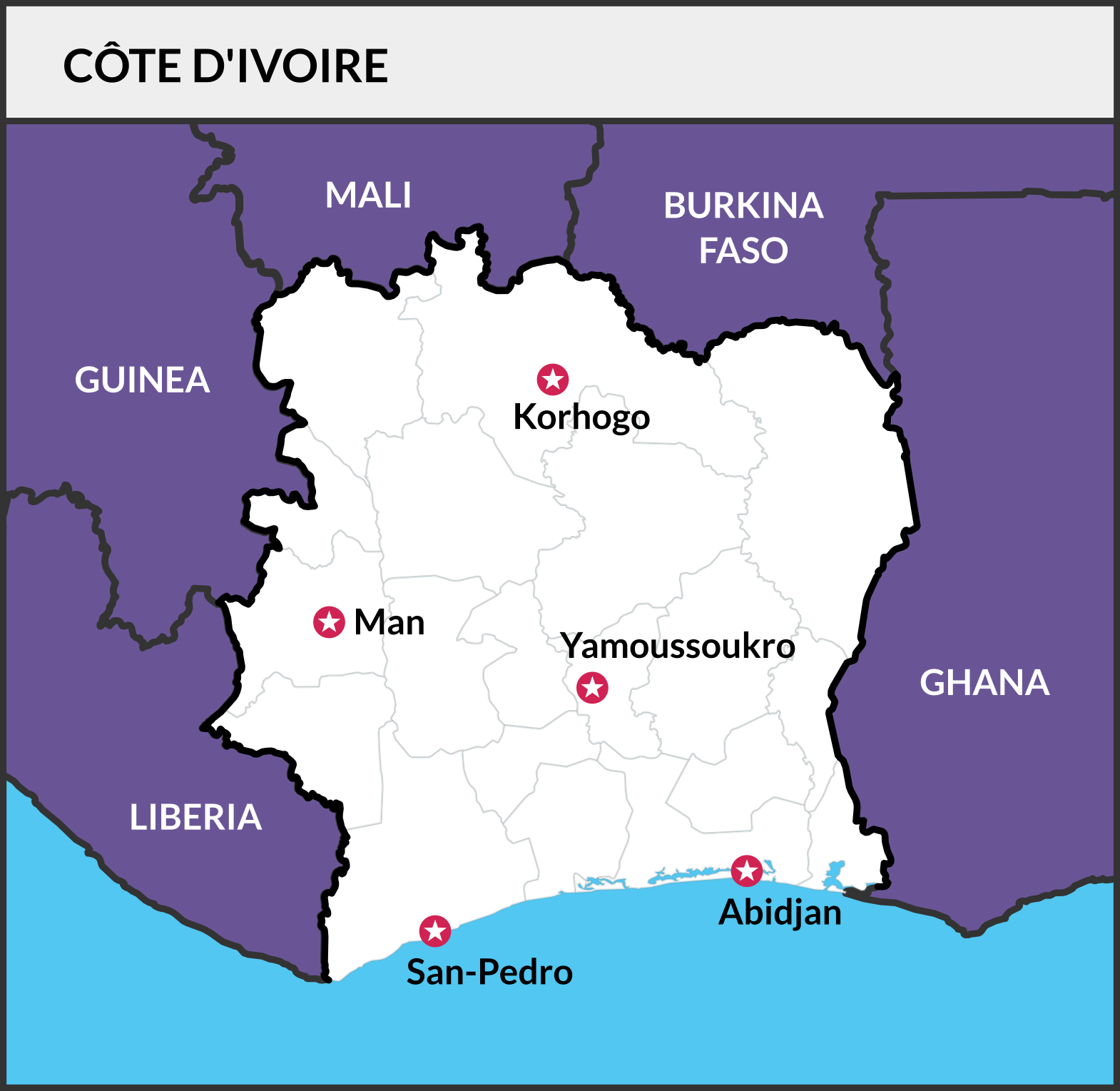
Our Study Focused on five major regions of the country
Our desk research revealed that the most significant challenge for women becoming entrepreneurs is not ethno-religious or political hurdles, but rather the rural–urban divide within the country, which predominantly dictates socio-economic levels, access to education, and access to information and financing mechanisms.
Based on an initial assessment of the different regions of the country (as well as the easing of COVID-19 travel-related restrictions), our team planned a two-week mission to Côte d’Ivoire to confirm our initial assumptions by meeting with stakeholders such as government and private sector leaders, banking and financial institutions of varying size, multinational donors and institutions, as well as grassroots women’s empowerment groups, business associations, and universities.
Côte d’Ivoire, despite a long history of civil conflict and a resurgence of violence surrounding the 2020 elections, has the fastest growing economy in West Africa. However, infrastructure and workforce potential remain underutilized — especially when it comes to women’s roles and impacts on the economy and the overall ecosystem.
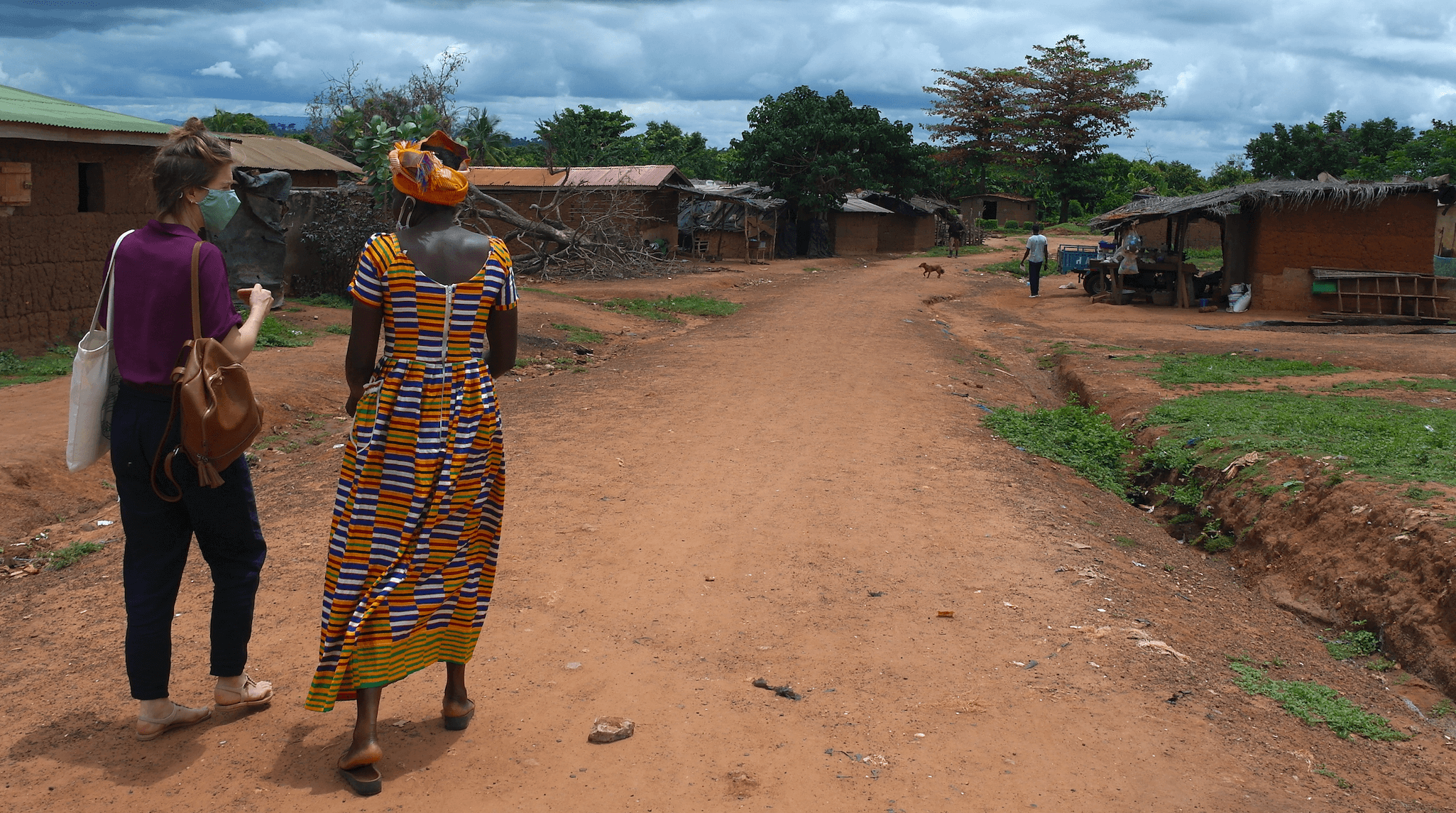
Judith walking with Ms. Akissi Jeanne president of her local VSLA, a member organization of CARE’s Women Enterprise Program.
Known as the world cocoa capital, the country also has many other cash-crop commodity value chains that propel its economic growth. Although agriculture only represents 15.8% of the country’s GDP, the sector provides jobs for two-thirds of the population. The agriculture-for-consumption industry is often dominated by women in early stages of low-value value chains, generally in rural areas. According to CARE, 80% of food production in Côte d’Ivoire is done by rural women, on whom the Ivorian economy depends. The focus on these specific agricultural commodities results in low-paying wages and unequal distribution of wealth, with most profits going to land and factory owners, rather than creating a healthy middle-class. Inequality among the population remains high, and even more so between genders, despite the feasibility of a redistribution of wealth given the country’s GDP per capita. The gender disparity in economic wealth is evidenced in many formats. One root cause for the gender gap is unequal access to education — the disparity in literacy rates is significant, with more than 53.1% of men able to read and only 32.5% of women literate nationally.
When it comes to the entrepreneurial environment in Côte d’Ivoire, we found that the overall challenges to becoming an entrepreneur or successful business leader were, as expected, exacerbated for women due to social and cultural systems that assign a higher value to men and boys than to women and girls. These cultural constraints have created barriers that our team was able to link to six major areas:
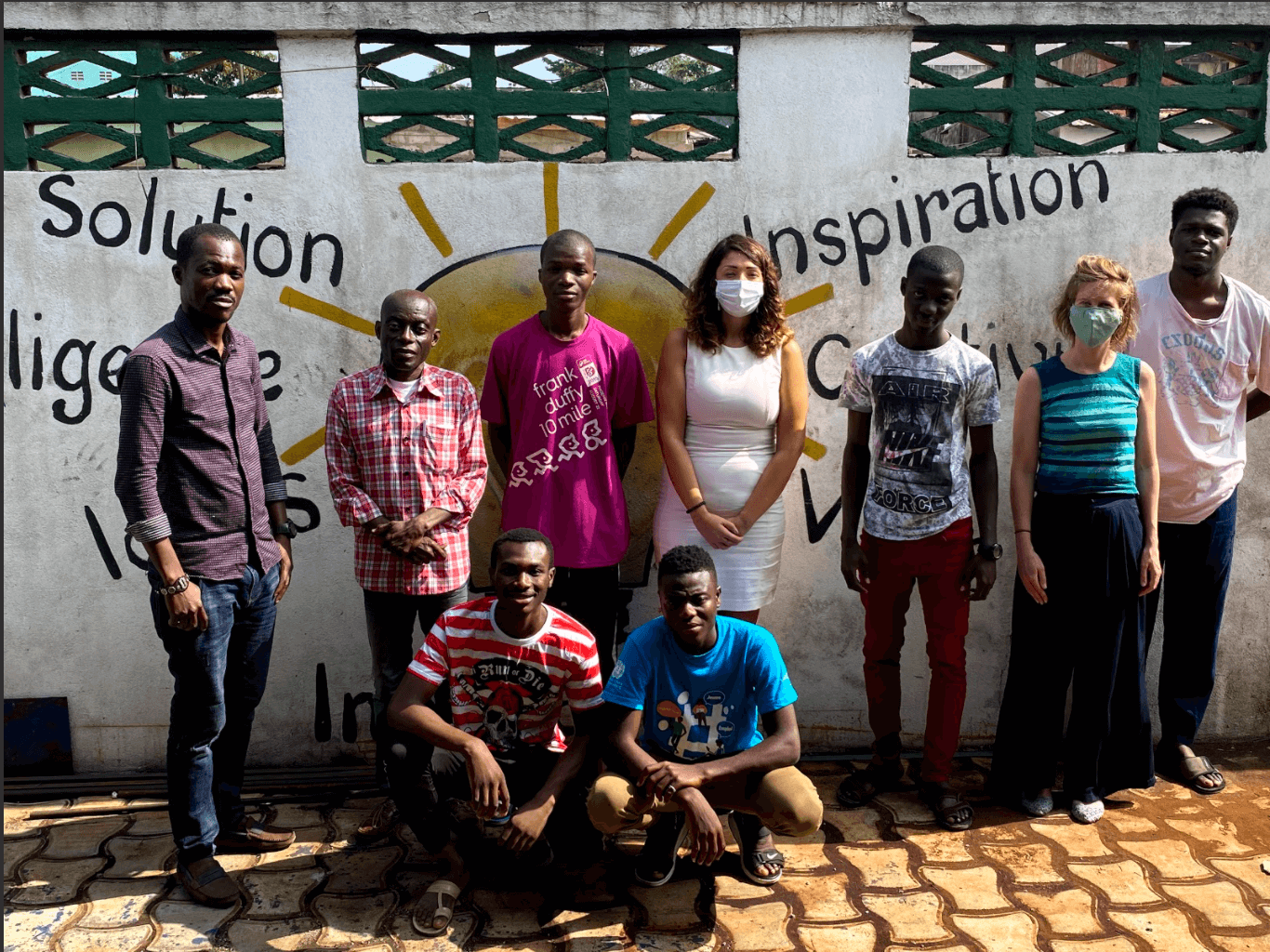
Our team with BabyLab – 1st FabLab of Côte d’Ivoire. The Catalystas team with Mr. Edwige Gbogou and some of his students at the Babylab garden, where teams were fabricating a mud-resistant wheelchair for their local community of Abobo on the outskirts of Abidjan.
As a part of this study, our team mapped out existing national and international female-oriented business and entrepreneurship programs, assessed their effectiveness and shortcomings, and provided market-driven insights into how the Dutch could most effectively contribute to current efforts in the country. In doing so, our team designed a 6-point gender, social, impact, and sustainability criteria assessment which was used to benchmark programs and projects we reviewed as a means of recommending the most effective, sustainable, and equitable future potential partners and programs. These could then be considered by the Dutch government as potential partners as they develop a future strategy for implementation that will ensure coordinated expansion and replication of existing successful programming. We mapped over 53 current programs and initiatives to empower women economically across the country throughout the project period. However, most projects focused on economic empowerment from the perspective of supporting collective models of agricultural production, mainly due to the significant number of women in the agricultural sector and the focus on poverty reduction. Our efforts in analyzing these programs were to support the Dutch embassy in avoiding the age-old challenge of working in silos, and in turn possibly duplicating existing efforts. Rather, we worked towards future coordination with other donors and organizations, thus ensuring that all efforts and future policies will serve to bridge specific gaps in women’s abilities to become entrepreneurs. Catalystas found that there were only approximately two dozen entrepreneurship focused programs throughout Côte d’Ivoire. The majority continue to operate gender-blind, and all are concentrated in Abidjan — exacerbating the challenges of lack of access and knowledge which we found in the ecosystem. As a result, our study found — and makes specific reference to — direct partners and programs fit for investment geared towards empowering women’s entrepreneurship potential and specifically closing gaps in underserved communities.
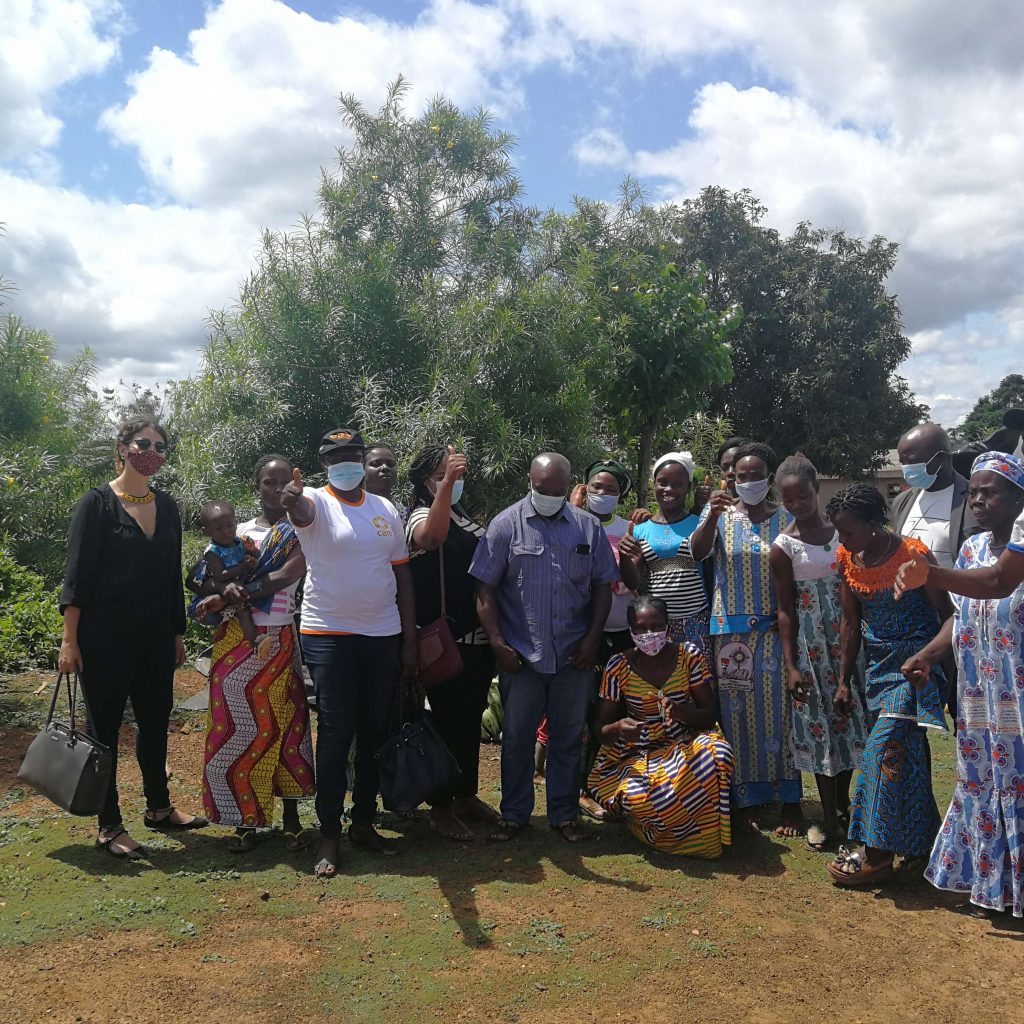
One of the many Village Savings and Loan Associations (VSLA) supported by CARE’s fantastic teams. This women’s collective is part of the cocoa growing community.
Our team drew conclusions and analysis throughout our four-month at distance research and two-week in-country mission. We triangulated our findings and mapped over 220 stakeholders across the governmental, multinational, NGO, financial, civil, social, and private sectors who are actively involved in or affect women’s ability to become entrepreneurs in Côte d’Ivoire. Our research included in-depth socio-cultural, financial, economic, and political analysis of the country and the opportunities, challenges, and things to keep in mind when considering promoting women’s entrepreneurship empowerment. Catalystas provided over ten recommendations to the Dutch government with clear budgetary, partnership, and structural advice to be considered while planning how to proceed with their future development support in Côte d’Ivoire. Our research is manifested in a 65-page report on the Ivorian ecosystem and its impacts on women entrepreneurs, a first of its kind that is now available in a redacted format on the Dutch government’s website. The Dutch government is currently in the process of analyzing our recommendations and designing a new strategy for Côte d’Ivoire based on the research that our team has conducted. Catalystas looks forward to seeing the Dutch government’s next steps in its implementation of this new strategy and the provision of support to other organizations focusing either on Ivorian market research or women’s economic empowerment programming.
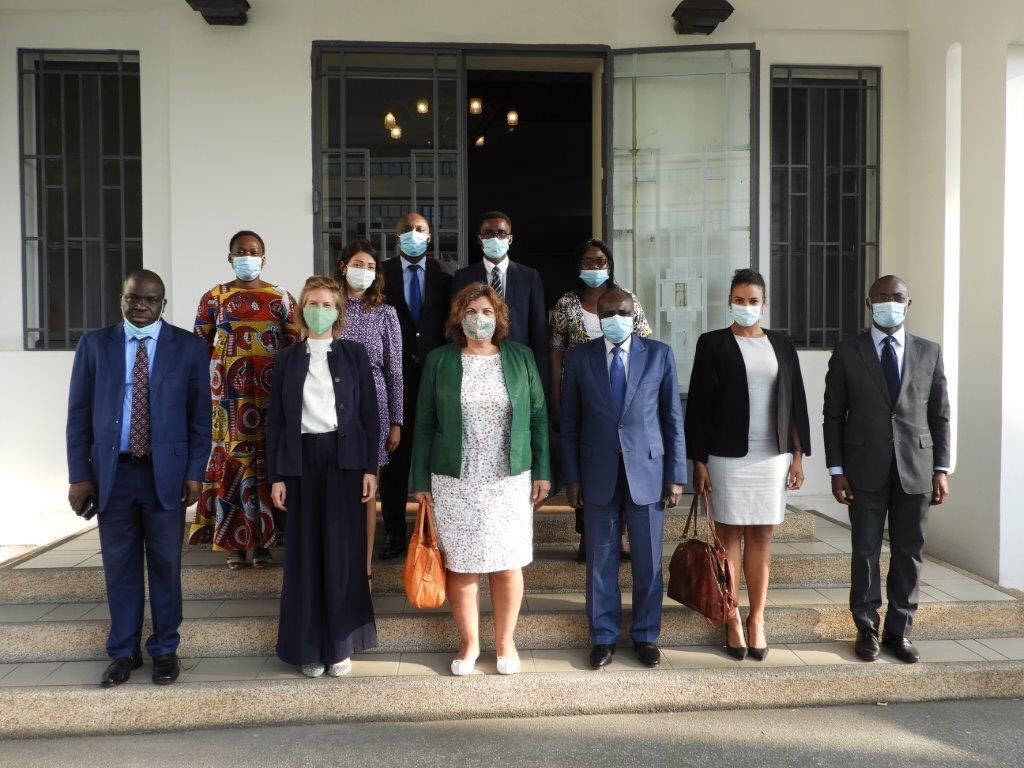
Ambassador Yvette Doud, and Raissa Marteaux Deputy head of Mission to the Dutch Embassy in Cote d’Ivoire supported Catalysts with attendance and participation with numerous meetings such as this one with heads of the Ivorian Chamber of Commerce and Industry. Involvement from local embassies is key to successful development support, we thank the Embassy team for their dedication, professionalism and support.
An Iranian-American with more than ten years of experience in international relations, economic development, and political empowerment, Beatrice is heavily invested in making the world a better place. Her work spans multiple regions of the world, often including high-risk environments, and her clients include non-governmental organizations, governmental bodies, and small-to-medium–sized corporations throughout the US, EU, Middle East, and Sub-Saharan Africa.
Originally focused on the areas of economic development, security, and disarmament, Beatrice turned to the humanitarian field, where she has expanded her expertise to include international security policy, gender equality, and innovation planning. She is a highly skilled grant writer, program designer, auditor, and capacity and impact assessor, as well as an authority on client and donor relations and ethical corporate engagement strategy.
Her personal and professional interests come together in the use of technology and data to provide solutions and insight into human rights, higher education, sexual reproductive rights, and environmental preservation.
Judith is a passionate development and humanitarian professional with more than eight years of experience working for actors ranging from the Netherlands Ministry of Foreign Affairs to INGOs, where she has worked on program design and development, policy development, and program management. She is an expert in the fields of improved business development, access to the labor market through higher education, humanitarian aid, and justice and security governance.
Holding a MSc in Conflict Resolution and Governance at the University of Amsterdam as well as a BSc in Political Science and a BA in Middle Eastern Studies from Leiden University, her experience focuses on fragile regions in the Middle East, South East Asia, and Sub-Saharan Africa, where she has lived and worked over the past decade for various NGOs.
Judith has extensive experience in developing and initiating projects, including scoping potential partners, finding a program’s unique selling point, and grant-writing. When it comes to project implementation, Judith is highly passionate about working with those actors on the ground who can make a real difference.
We built Lysta as an answer to one of our own problems: the need to quickly assemble teams of experts across various subject matter, geographic, linguistic, and thematic areas for projects and proposals as they arise. We quickly realized that we were not the only ones facing this challenge! With the speed that development projects require hiring, turnaround, and technical insights, we see first hand how helpful it is to have a ready-made database of vetted experts to call on.
For existing and potential Clients, you can access all consultant full profiles by signing up here as a client for free.
For consultants, adding your profile to Lysta means jumping to the top of the list for our clients in recruitment processes. We do the heavy lifting: the CV reviews, interviews, vetting, and personnel management; so when our clients come to us, they know they’re hiring someone they can trust to deliver high quality, timely results. Click here to add your profile for review.
We’re proud to be a link in the chain that connects the best of the best – don’t hesitate to reach out and see how you can put Lysta to work for you!